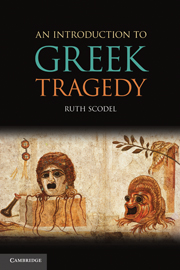11 - Helen
Published online by Cambridge University Press: 05 June 2012
Summary
Helen is one of the tragedies that does not at all conform to expectations of “the tragic.” It is, indeed, much closer to a modern idea of comedy (though not to fifth-century Greek comedy). Through the nineteenth century and most of the twentieth, the play was typically dismissed as frivolous and escapist. It is an unusually clear instance of how modern history influences the reading of ancient texts: Helen came back into favor in North America very suddenly. In 1967, a commentary by A.M. Dale was published and a German commentary in 1969 by Richard Kannicht, which stressed the antiwar aspect of the play. Then, in the early 1970s, there were three significant articles in three years. Evidently, Helen's treatment of the Trojan War resonated with American disillusionment in Vietnam. There was no corresponding revival in the theater, for Helen was not familiar enough, and Trojan Women has always been the obvious choice for a director who wants an antiwar tragedy.
Euripides did not invent the variant of the Trojan War story in which Helen never went to Troy but spent the war in Egypt in the care of King Proteus, while an eidolon, a fake Helen fashioned by the gods, went to Troy: it went back to the “Palinode” of the lyric poet, Stesichorus. According to legend, he had begun to perform a poem that followed the standard version when Helen – who had the status of a goddess in Sparta – struck him blind.
- Type
- Chapter
- Information
- An Introduction to Greek Tragedy , pp. 162 - 173Publisher: Cambridge University PressPrint publication year: 2010



